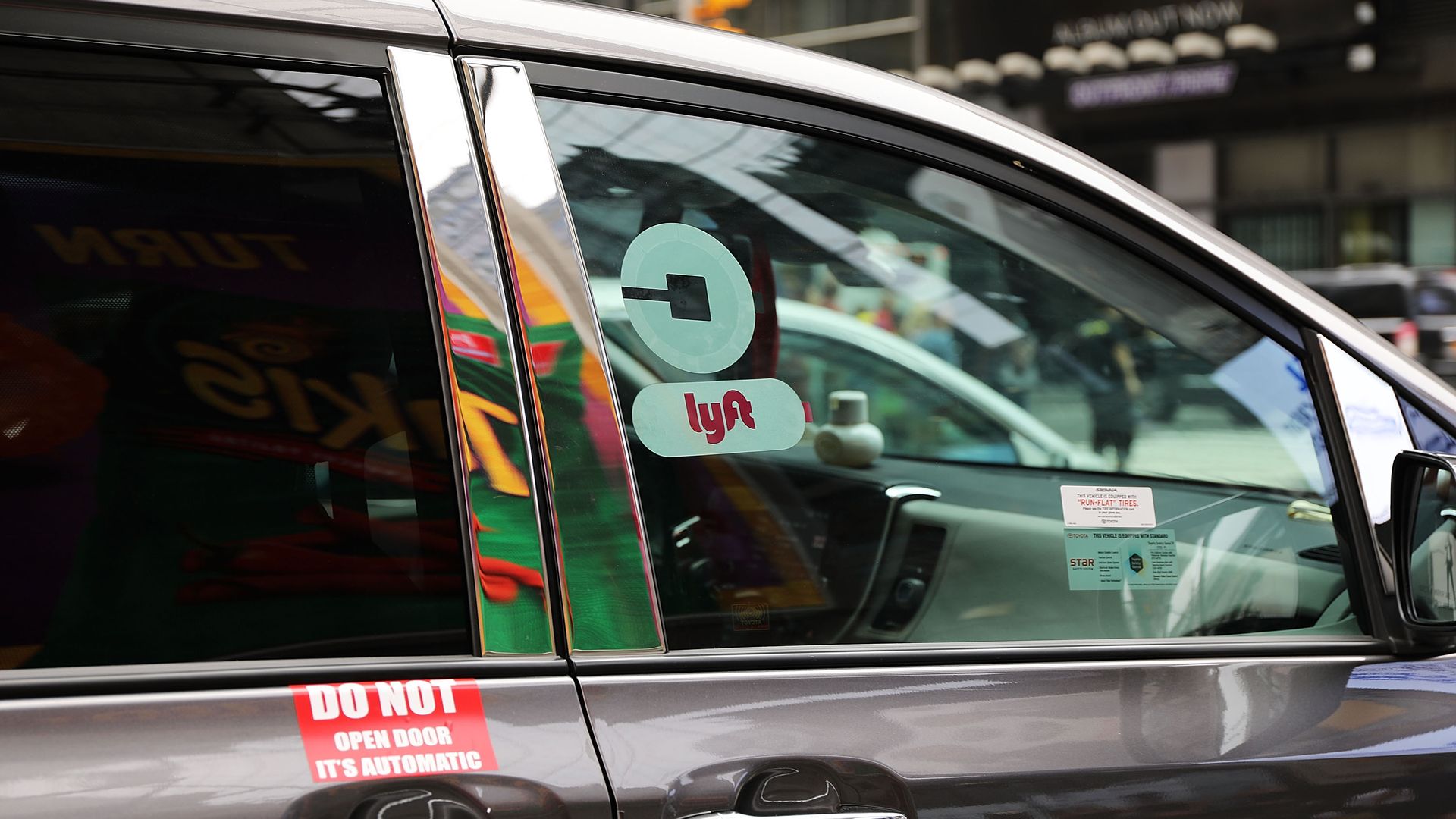The ride-hailing challenges autonomy can't solve
Add Axios as your preferred source to
see more of our stories on Google.

A ride-hailing vehicle in New York City. Photo: Spencer Platt/Getty Images
Ride-hailing companies like Uber, Lyft and China's Didi have dominated the emerging mobility market and are now investing in autonomous technology, which Goldman Sachs projects would accelerate growth and increase profitability by eliminating driver subsidies.
The big picture: Even with AV fleets, however, ride-hailing companies may struggle to improve their bottom lines without addressing other inefficiencies in their business model. The time ride-hailing vehicles spend empty (traveling 2.8 miles for every mile in service) only exacerbates the role they have played in slowing city traffic, by up to 20% in New York and 51% in San Francisco.
Background: After launching in 2009, Uber reached more than 700 cities in some 80 countries with 41 million riders in the U.S. alone. Lyft followed in 2012 and now operates in 300 cities and provides more than one million rides per day. China’s DiDi also launched in 2012 and now serves some 550 million users in 400 cities.
Where it stands: Even though none of these companies is near profitable, they are getting hockey-stick valuations. Uber lost some $4.5 billion in 2017 and its IPO filing suggest a valuation of $120 billion. Lyft lost $600 million and its IPO is expected to fetch $15 billion. Their investments in autonomous mobility have been seen as critical to profitability.
The catch: Simply replacing ride-hailing cars with robotaxis will not fix the supply-demand mismatch, which could be economically disastrous if ride-hailing businesses own their fleets (currently, they don’t lose money when vehicles are empty because they only pay drivers when a passenger is in the car).
- Then there are the capital costs of self-driving fleets, which Bloomberg has estimated as an initial outlay of $306 billion.
What's needed: Moving more people with fewer vehicles and collecting more fares per trip (as in pooled rides, for example) could smooth the road to profitability.
- Ride-hailing companies may also opt to lower upfront spending by outsourcing vehicle ownership and management to firms like Keolis or Transdev — as city transit agencies often do — and turn to companies like Bestmile, door2door and Routematch to optimize their matching of supply and demand.
The bottom line: Even in an autonomous world, someone needs to own, maintain and manage fleets of those expensive vehicles.
Raphael Gindrat is co-founder and CEO of Bestmile, which has developed a fleet-management platform.
